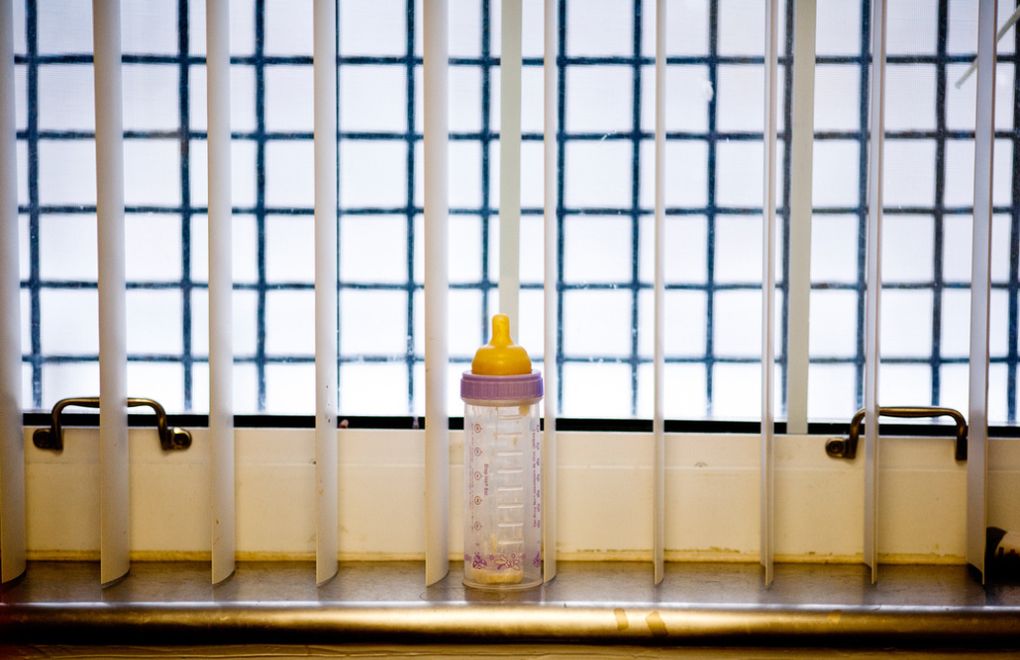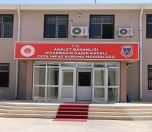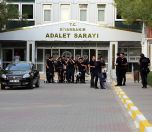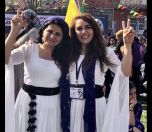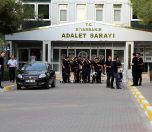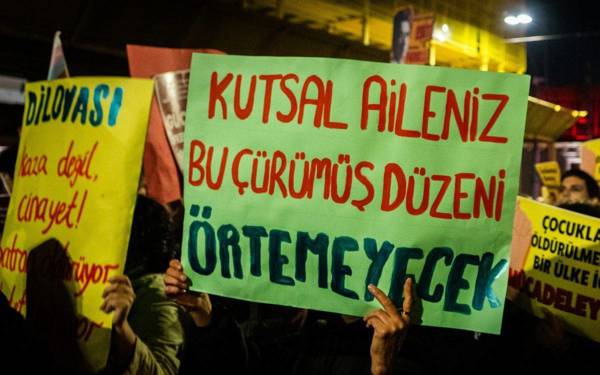* Photo: Social media (hapistecocuk account)
Click to read the article in Turkish
"Those who send a child to prison with the mother does not know the needs of children; if they do, then they do not care.
"For them, 'The child has no name,' 'The child has no rights,' 'The child has no worth.' All in all, as a country which is a party to the UN Convention of the Rights of The Child, there is a violation of children's rights..."
It is how Prof. Mesude Atay from İstanbul Bilgi University summarizes the violations of rights faced by children imprisoned with their mothers.
Having specialized in child development and education and penned books on these subjects, Atay is also the Head of Child Development Department of İstanbul Bilgi University Faculty of Health Sciences.
Dilgeş not given his medicine
As part of an investigation launched by Diyarbakır Chief Public Prosecutor's Office against Rosa Women's Association, 18 people were detained on May 22. 12 of these people were arrested a few days later. They were charged with "being members of a terrorist organization."
Gönül Aslan is one of the 12 people who have been arrested as part of this investigation. Her son Dilgeş, who is only 3.5 years old and suffers from a kidney disease, has also been sent to prison together with her.
The father of Dilgeş is also abroad for political reasons. Having a kidney disease, Dilgeş is not given his medication, according to daily Evrensel.
We have spoken with Prof. Mesude Atay about the condition of Dilgeş and hundreds of other children like him behind bars.
When a family member, especially a parent, is arrested, what kind of an effect does it have on the child?
The degree of communication and interaction between the child and the arrested family member is important in answering this question. However, when it is a mother or a father who is arrested, it might have a detrimental effect on the development of the child, especially if he or she is aged 0-8. It might especially affect his or her psychosocial development.
Because, mentally speaking, it is hard for the child to comprehend arrest, law, punishment, prison, etc. However, being separated from the parent and how this separation takes place might affect the levels of fear and anxiety of a child to such an extent that it could even lead to a trauma. In this process, the attitude and behavior of the ones who care for the child as well as how they manage this process with the child are of utmost importance.
Unfortunately, people are sometimes detained with their houses raided. When it is the case, children need to be taken away from the scene of incident and all factors that could cause fear and anxiety must be eliminated as much as possible. Security officers need to be trained about it as well.
'Development of children affected negatively'
As some children need the care of their mothers, they can be imprisoned with them. How does it affect children?
It definitely has a negative effect. As the conditions are already not suitable for adults, it cannot be expected that they will be suitable for the child.
Above all else, what about the mental health of the mother? How healthy is she mentally behind bars? We know that the mental health of a mother is a very effective factor in order for her to take care of the child.
On the other side, the physical conditions of the prison are not suitable to support the development of the child. Clean air, hygiene conditions, need for sunlight and sun, healthy food suitable for children, daily routines for children like sleep, games and bath, the ways in which the child interacts and communicates with other adults... These are all important factors that have an effect on the growth and development of children.
After they are born, children start to interact first with their mothers, then with the ones in their close environment. The more their close environment grows and the more skilled they get in moving, the more they need to interact with their peers. But, in a place like prison, social skills such as interacting and learning with peers will not develop.
As they will be deprived of the nature where they will learn things by experiencing and other training materials, their mental development will also be affected negatively. They cannot run, jump or climb as they wish, which will affect their motor development.
To summarize, in the face of all these negative conditions, children can develop a negative sense of self, lack of self-confidence, tendency to use violence, adjustment and behavior disorders, which might even lead to personality disorders.
'Rights of the child disregarded'
What needs to be done?
At this point, we need to look at it from a rights-based perspective and talk about the fact that the child is deprived of his or her right to life and development. As a counter-argument, it is said that the child is kept with the mother so that he or she will not be deprived of her. In fact, a mother, by herself, is not enough for the growth and development of the child.
Those who send a child to prison with the mother does not know the needs of children; if they do, then they do not care.
For them, "The child has no name," "The child has no rights," "The child has no worth." All in all, as a country which is a party to the UN Convention of the Rights of The Child, there is a violation of children's rights.
The UN Convention considers the "Best Interest of the Child." The Articles 3 and 18 of the Convention emphasize that states parties shall undertake to ensure the child such protection and care as is necessary for his or her well-being, taking into account the rights and duties of his or her parents, legal guardians, or other individuals legally responsible for him or her, and, to this end, shall take all appropriate legislative and administrative measures.
How do you see such arrests in terms of children's rights?
I regard them as a violation of right. It is not possible to ensure the best interests of the child in prison. Children are punished with their mothers, in a sense. Projects needs to be developed for convicted mothers urgently and alternative ways of penalization need to be considered. We know that 780 children between the ages of 0 and 6 are behind bars with their mothers.
Children are sent to preschool institutions during the day, but they are both insufficient in number and open to debate in terms of quality.
'Punishing the child is a violation of right'
Speaking specifically about Dilgeş, we know that he does not have one kidney and his father is abroad in exile. What needs to be done first to protect the mental health - health of Dilgeş?
Peoples' Democratic Party (HDP) assembly member Gönül Aslan was detained and arrested together with her 3.5-year-old son Dilgeş and sent to prison. The fact that it was not debated on the public agenda as much as it deserved shows the level of insensitivity towards the value of and perception towards the child. The mental health of Dilgeş needs to be protected. The fear and anxiety that he experienced might lead to a trauma.
He has been separated from his cosy home, his toys, his peers and daily life. An adult can understand this, you can clarify it to an adult, but you cannot do this with Dilgeş. He cannot comprehend it, he cannot understand it. He can only fear. Being separated from his mother, a possible harm inflicted on her or an uncertainty might lead to a trauma on his part. Punishing a child together with his mother in his most critical stage of development is a crime against humanity, it is a violation of right.
The mother has a very important role in protecting the mental health of Dilgeş, but the environment is as decisive as the mother. Since the environment and conditions cannot be changed, it will be more difficult to protect the mental health of Dilgeş. This harm can only be undone with suitable support later on. As for now, the only thing that can be done would be to, at least, defer the sentence of the mother or release her to house arrest. Violations of children's rights can also be prevented with similar new solutions to be developed by the state for 780 mothers and their children.
About Mesude Atay
Academic, writer. She did her BA degree in the Department of Child Development and Training at Hacettepe University in 1983. She completed her MA degree in the same field two years later. She did her second MA degree in the field of Special Education Psychology at the University of London in 1994. She completed her PhD in the field of Child Development and Training in 1995. She became an Assoc. Prof. in 1998 and a Prof. in 2014. She has several books on her fields of specialization. She is also the Head of Child Development Department of İstanbul Bilgi University Faculty of Health Sciences. |
(EMK/SD)





